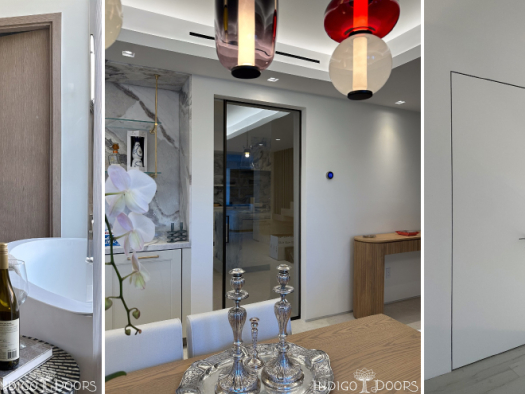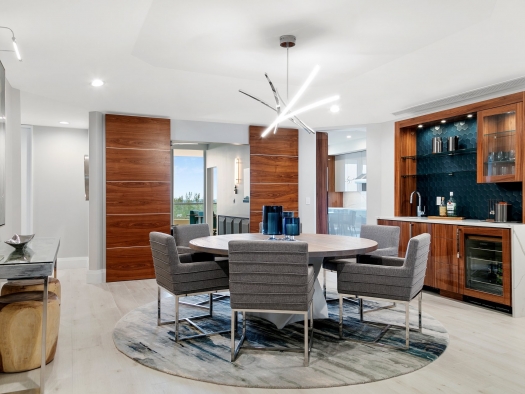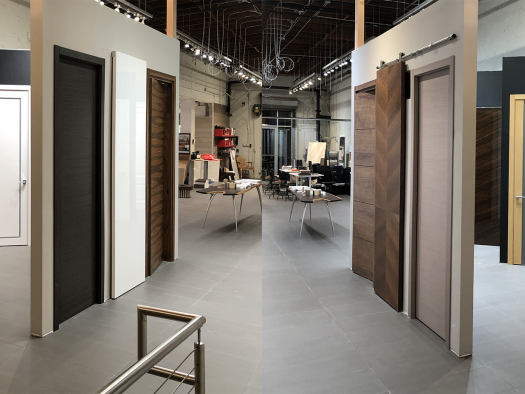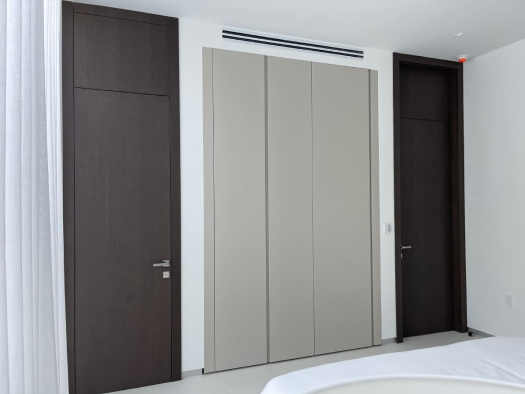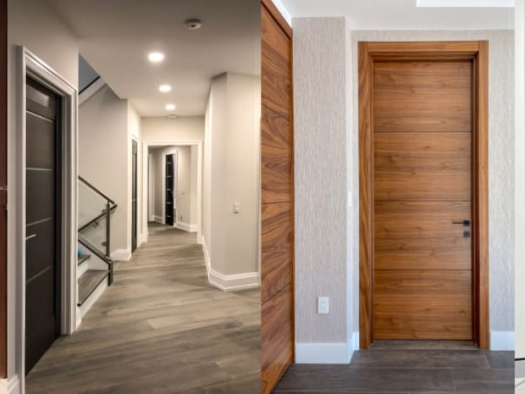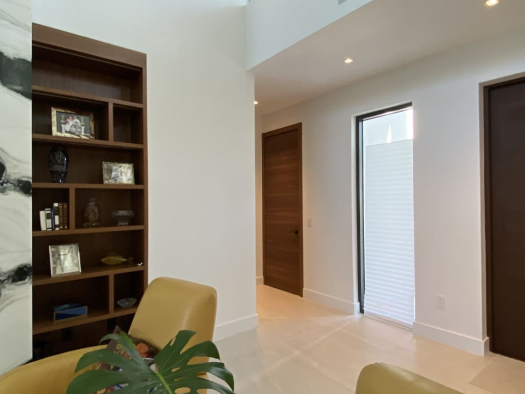- The Importance of Choosing the Right Interior Doors for a Home Office
- Unique Needs of a Home Office
- Style and Design of Doors for a Home Office
- Functional Features of Interior Doors for a Home Office
- Ease of Use and Ergonomics
- Technological Solutions for a Home Office
- Practical Tips for Choosing and Installing Interior Doors for a Home Office
- The Importance of Choosing and Installing Interior Doors for a Home Office, Balancing Comfort, Functionality, and Style in the Workspace
The Importance of Choosing the Right Interior Doors for a Home Office
The proper selection of interior doors for a home office is crucial because they are not just decorative elements but key components in creating a comfortable and functional workspace. Interior doors in a home office should consider the unique characteristics of this space, which combines a work environment with a domestic atmosphere. They impact the level of comfort, privacy, sound insulation, and even the aesthetic perception of the workspace.
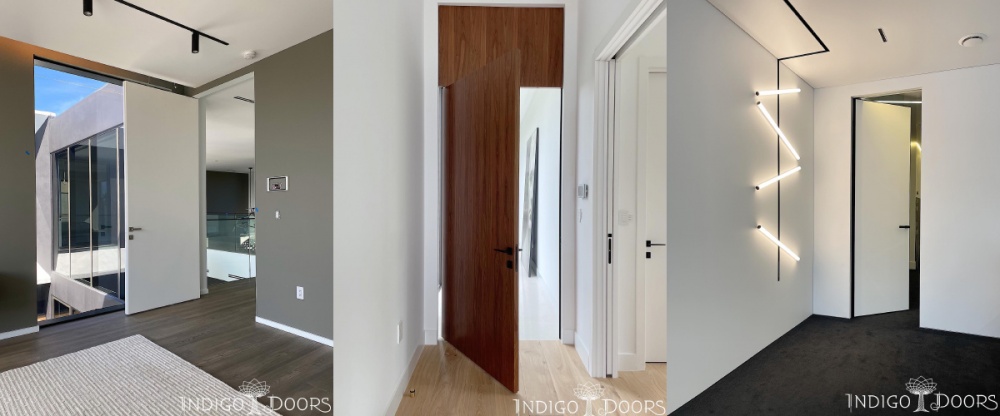
Unique Needs of a Home Office
A home office requires special considerations when choosing doors due to its unique requirements. It is important to strike a balance between work convenience and integration with the home setting. Interior doors should provide the necessary level of soundproofing and privacy, considering the potential presence of other family members in the house. Additionally, creating a professional and structured workspace can be achieved through an appropriate choice of door style and design.
Features of a Home Workspace: Blending Work and Living Spaces
In a home office, the workspace often blends with relaxation areas or residential spaces. This makes the choice of interior doors even more important as they must harmoniously fit into the overall home interior. These doors should not only reflect professionalism and functionality but also create a cozy and muted atmosphere conducive to work.
The Importance of Comfort and Functionality in Enhancing Productivity and Meeting User Needs
The comfort and functionality of interior doors directly impact work productivity in a home office. Well-chosen doors that open and close easily, with good sound insulation and ergonomic design, help create conditions for effective work. Furthermore, the ease of using doors contributes to stress reduction and increases user satisfaction with the work process.
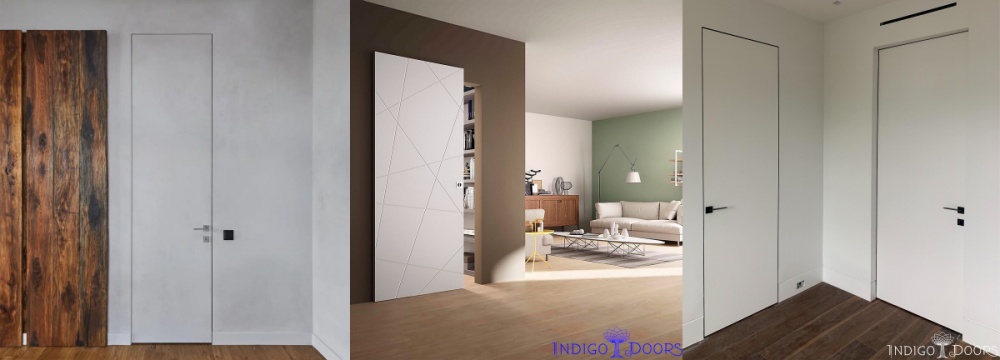
Style and Design of Doors for a Home Office
The choice of style and design for interior doors in a home office plays a key role in creating a unique workspace. Doors should complement the overall interior style, whether it's modern minimalism, classic, or eco-friendly. It's important to consider the user's preferences and create an atmosphere that fosters inspiration and productivity.
Matching the Overall Interior Style: Creating a Harmonious Look
Harmoniously combining interior doors with the overall interior style helps create a cohesive and polished appearance. Doors can be made from various materials such as wood, glass, metal, or their combinations to emphasize the chosen style. This is important for creating a pleasant atmosphere and enhancing comfort in the workspace.
Material and Finish Choices: Aesthetic and Practicality in the Workspace
When choosing interior doors for a home office, one should consider not only aesthetic preferences but also the practicality of materials. For example, wooden doors add warmth and natural beauty to the room, while glass doors add spaciousness and increase natural light. It's also important to pay attention to the durability and ease of maintenance of the chosen material.
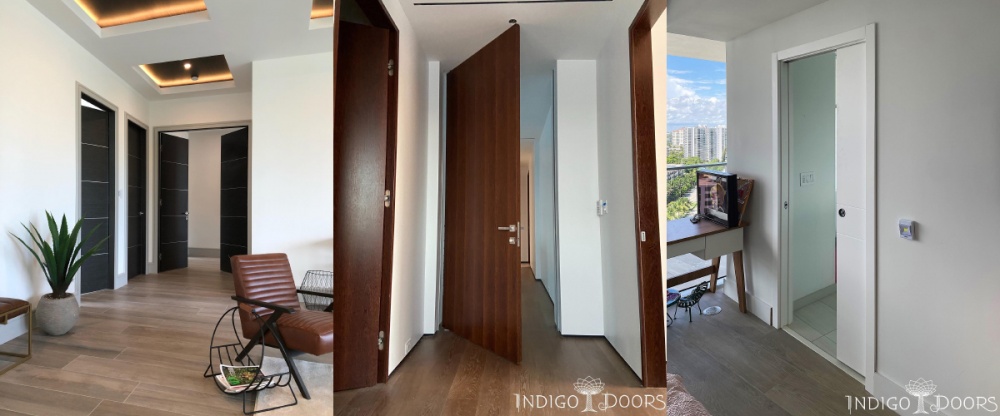
Functional Features of Interior Doors for a Home Office
In addition to aesthetics, the functional features of interior doors also play an important role. Different types of doors, such as sliding or hinged, may be more or less convenient to use depending on the room's layout. It's also worth considering closing mechanisms, sound insulation, and the potential for additional integration with smart home technologies.
Sound Insulation: Ensuring Quietness and Privacy in the Workspace
One of the key aspects of interior doors for a home office is sound insulation. Well-insulated doors help create a quiet and calm environment, which is important for concentration and preventing distractions during work. This is especially relevant if there are children or other family members in the house, or if the surroundings are noisy.
Security Level: Protection against Unauthorized Access and Confidential Data Preservation
Security is a priority when choosing interior doors for a home office. Doors should provide protection against unauthorized access and preserve the confidentiality of the workspace. This may involve using reliable locks and security mechanisms, such as electronic locks or access control systems, especially if maintaining confidentiality and protecting valuable information is crucial.
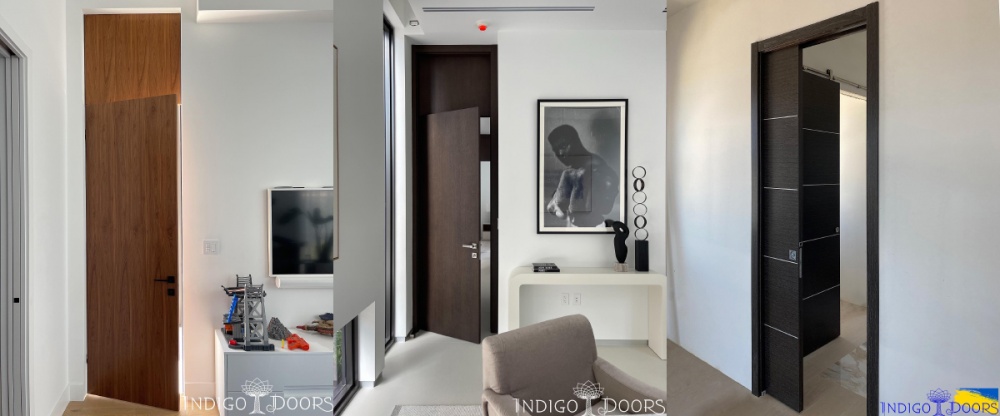
Ease of Use and Ergonomics
Interior doors for a home office should not only be functional but also user-friendly. This includes easy opening and closing of doors, as well as convenience in working with closing mechanisms. Ergonomic door design also plays an important role, especially if the user needs to frequently enter and exit the workspace.
Ease of Opening and Closing: Creating a Comfortable Work Environment
It's important for interior doors in a home office to open and close easily and quietly. This creates a comfortable work environment and allows users to move between the workspace and other areas without extra effort. Systems that facilitate door opening, such as soft closing or automatic opening mechanisms, can be especially useful in a home office.
Ease of Maintenance and Adjustment of Doors
Good interior doors should be easy to maintain and require minimal upkeep. This can include the ability to adjust hinges or mechanisms to avoid sticking or squeaking when opening doors. It's also important to consider ease of troubleshooting or component replacement if needed, to keep the doors in good working condition for a long time.
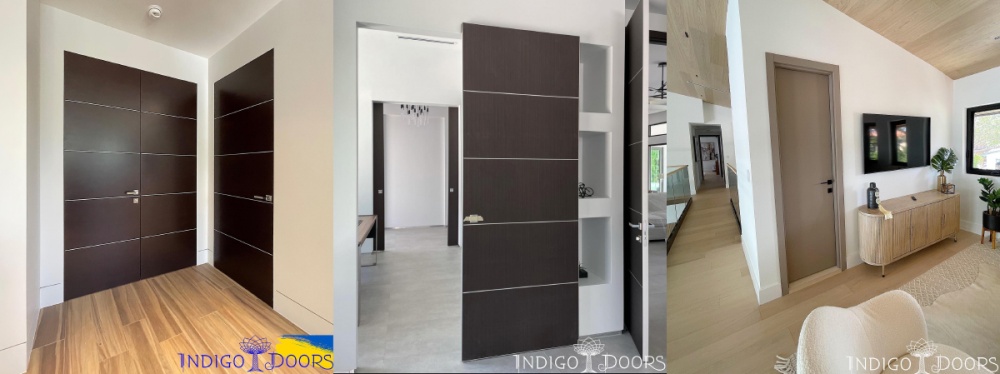
Technological Solutions for a Home Office
Modern interior doors can be equipped with various technological solutions that make them more convenient and functional for use in a home office. These may include automation systems that allow door control using smart technologies, integration with smart home systems for access control, or even the use of glass doors with electronic transparent screens to enhance work efficiency.
Integration of "Smart" Systems: Automation and Door Management with Smart Technologies
In modern home offices, smart systems are increasingly used for automation and management of various aspects of the space, including doors. Integrating interior doors with smart technologies allows for process automation and access control without extra effort. For example, this could involve using smart locks that can be opened using a mobile app or even voice commands, providing a high level of security and convenience.
Use of Glass and Transparent Doors: Increasing Natural Lighting and Creating Open Space
Glass and transparent doors can be an excellent choice for a home office as they contribute to increased natural lighting in the room and create a visual sense of open space. These doors allow light to pass through, making the room brighter and more appealing for work. Additionally, they can create a sense of spaciousness even in small spaces, contributing to a comfortable atmosphere for creativity and productive work.
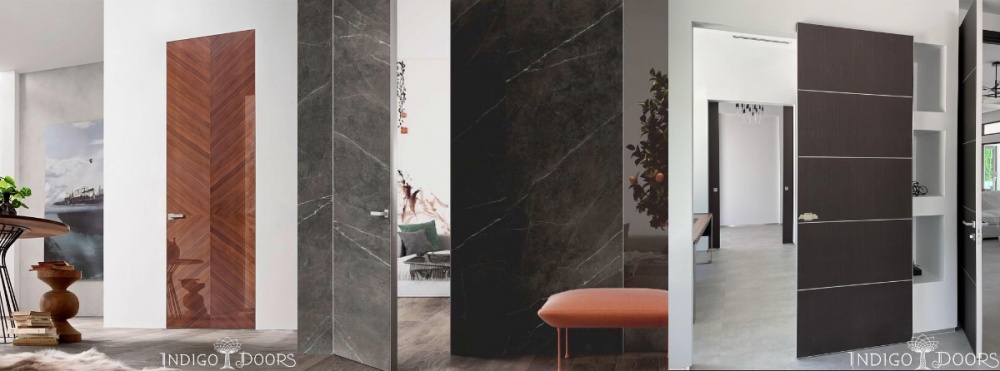
Practical Tips for Choosing and Installing Interior Doors for a Home Office
When selecting and installing interior doors for a home office, several practical aspects should be considered. First and foremost, it's important to assess the dimensions of the space and choose a door type that will fit optimally within the available area. Swing doors may be convenient for larger spaces, whereas sliding doors can save space in smaller offices.
Choosing the Optimal Door Type: Swing, Sliding, Concealed Hinges, and Others
Swing doors are the most common type and work well in larger spaces where there's ample room for them to open. Sliding doors are particularly convenient in smaller offices as they don't require additional space to open. Doors with concealed hinges create a smoother and more aesthetic appearance, which can be preferable for modern interiors.
Considering Room Features and User Needs When Planning Installation
Finally, when installing interior doors in a home office, it's essential to consider the room's features and the individual needs of the user. For instance, if enhanced privacy or soundproofing is required in the office, doors with appropriate characteristics should be chosen. It's also important to consider the style and overall atmosphere of the space to ensure that the doors complement the interior and create a suitable work environment.

The Importance of Choosing and Installing Interior Doors for a Home Office, Balancing Comfort, Functionality, and Style in the Workspace
In conclusion, making the right choice of interior doors for a home office is crucial for creating a comfortable and efficient work environment. From selecting the style and materials to considering functional features and integrating modern technologies - all these aspects influence the level of comfort, safety, and aesthetics in a home office. By utilizing practical tips and taking into account the individual needs of the user, it's possible to create an ideal work space where functionality and style blend seamlessly.

